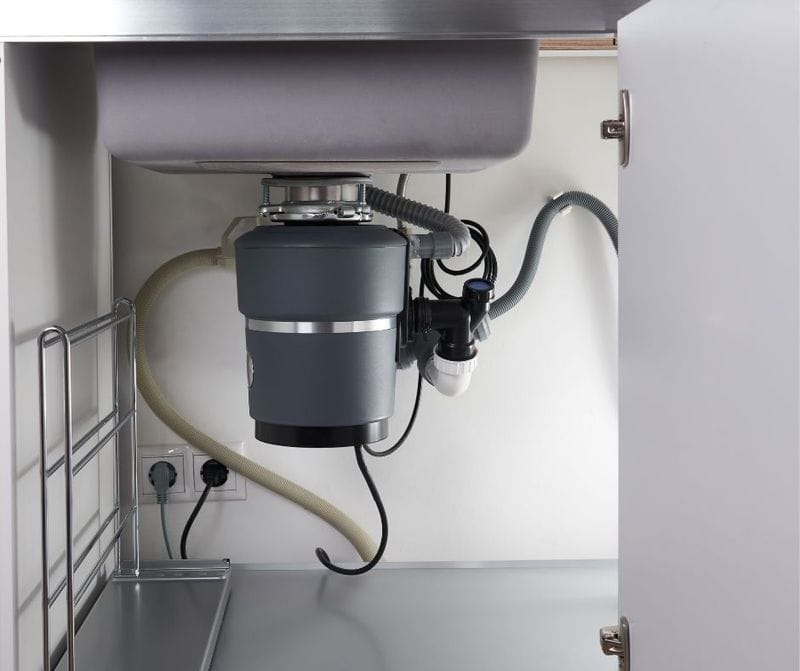Plumbers know their pipes, and they have a list of unspoken rules they swear by to keep their home plumbing in tip-top shape.
While you might not have a plumbing license, you can definitely benefit from their wisdom.
Here are 10 things plumbers never do in their homes, and neither should you, if you want to avoid a watery disaster!
1. Using Chemical Drain Cleaners
Chemical drain cleaners may promise quick fixes, but they often lead to bigger problems. The potent chemicals can corrode your pipes, turning a simple clog into a major leak.
Plumbers steer clear of these harsh solutions, knowing that they can damage more than they repair. Instead, they rely on safer, mechanical methods like a trusty plunger or a drain snake.
Imagine the hiss of chemicals reacting violently with your pipes, a recipe for disaster.
Opt for natural alternatives, like baking soda and vinegar, which clear blockages without the risk of pipe erosion. Your plumbing will thank you.
2. Flushing Non-Flushable Items
It might seem convenient to flush items like wipes or cotton balls down the toilet, but plumbers know better. These non-flushable items can cause significant blockages in your plumbing system.
Think of your pipes like a highway; certain vehicles just don’t belong on it. Plumbers avoid this trap by disposing of such items in the trash.
Picture the horror of a toilet overflowing, all because of a rogue cotton ball.
Keep your plumbing flowing smoothly by sticking to the basics: human waste and toilet paper are the only things that should go down your toilet.
3. Pouring Grease Down the Drain
Grease might slide down your drain effortlessly while hot, but once it cools, it congeals into a stubborn blockage.
Plumbers are well aware of this sneaky culprit and avoid pouring greasy substances down the drain like the plague. Instead, they allow grease to cool and toss it in the trash.
Imagine grease solidifying into little fat monsters, lurking in your pipes, waiting to cause chaos.
Keeping a jar or container for used oil is a plumber-approved strategy that ensures your drains remain free-flowing and trouble-free.
4. Overloading the Garbage Disposal
Even the most robust garbage disposal has its limits, and plumbers know them well. Overloading your disposal with large chunks or fibrous foods can lead to clogs or mechanical failure.
Visualize your disposal as a hungry, but picky eater; too much food, and it simply can’t keep up. Plumbers feed their disposals gradually and avoid tough items like bones or corn husks.
Listening to the comforting hum of a content disposal is much more pleasant than dealing with a grinding, jammed mess. Treat your disposal gently, and it will serve you well.
5. Ignoring Small Leaks
A tiny drip might seem harmless, but it can lead to significant water waste and expensive damage over time. Plumbers never ignore small leaks, knowing they often signal bigger underlying issues.
Picture a slowly dripping faucet, its rhythmic plink a constant reminder of water and money going down the drain. Instead of turning a blind eye, plumbers promptly repair leaks, ensuring they don’t escalate.
By addressing the issue early, they maintain their plumbing’s integrity and save themselves from potential headaches. A proactive approach keeps both your pipes and wallet intact.
6. Overtightening Connections
It might feel like a good idea to tighten a plumbing connection as much as possible, but plumbers know that overtightening can lead to cracks or broken fittings.
Think of it like a handshake; too firm, and you risk causing damage. Plumbers use the right tools and apply just enough pressure to secure connections without overdoing it.
The satisfying click of a connection settling perfectly into place is music to their ears. Avoid the temptation to turn that wrench one more time, and your plumbing will stay robust and leak-free.
7. DIYing Your Plumbing
Taking on plumbing tasks yourself might seem enticing, but plumbers understand the value of professional expertise. DIY plumbing can lead to costly mistakes and unsafe installations.
Imagine the confusion of navigating a labyrinth of pipes without a map; one wrong move, and you’re in deep water.
Plumbers call in fellow professionals for specialized tasks, recognizing when it’s time to rely on experience. Don’t let the thrill of DIY lead you astray.
Trusting a pro ensures your plumbing is up to code and functioning flawlessly, saving you from potential disaster.
8. Neglecting to Use Drain Strainers
Plumbers don’t underestimate the power of a simple drain strainer. These unassuming devices catch debris before it causes clogs in your pipes.
Consider drain strainers as your plumbing’s first line of defense, intercepting unwanted particles before they wreak havoc.
Without them, hair, food bits, and soap scum can accumulate, leading to slow drains and unpleasant odors. The gentle clink of debris hitting the strainer is a satisfying sound to a plumber’s ears.
By placing strainers in sinks and tubs, you maintain a healthy flow and prevent future blockages.
9. Pouring Paint or Harsh Chemicals Down the Drain
Paint and harsh chemicals can wreak havoc on your plumbing and the environment.
Plumbers avoid pouring these substances down the drain, knowing they can corrode pipes and contaminate water supplies.
Visualize a vibrant swirl of color and chemicals, seeping into your plumbing like a toxic kaleidoscope. Instead, they dispose of these materials at designated waste facilities.
It’s a responsible choice that protects both your home and the planet. Keep your drains clear and your conscience clean by following their lead.
10. Neglecting Regular Maintenance
Regular maintenance is key to preventing plumbing disasters, and plumbers never neglect this vital task. Imagine your plumbing as a living system, requiring occasional check-ups to keep it running smoothly.
Plumbers schedule regular inspections, looking for wear, corrosion, or potential problems. The peace of mind from knowing their system is in good health is priceless.
By staying on top of maintenance, they catch small issues before they become costly repairs. A little attention today can prevent a flood of problems tomorrow.











